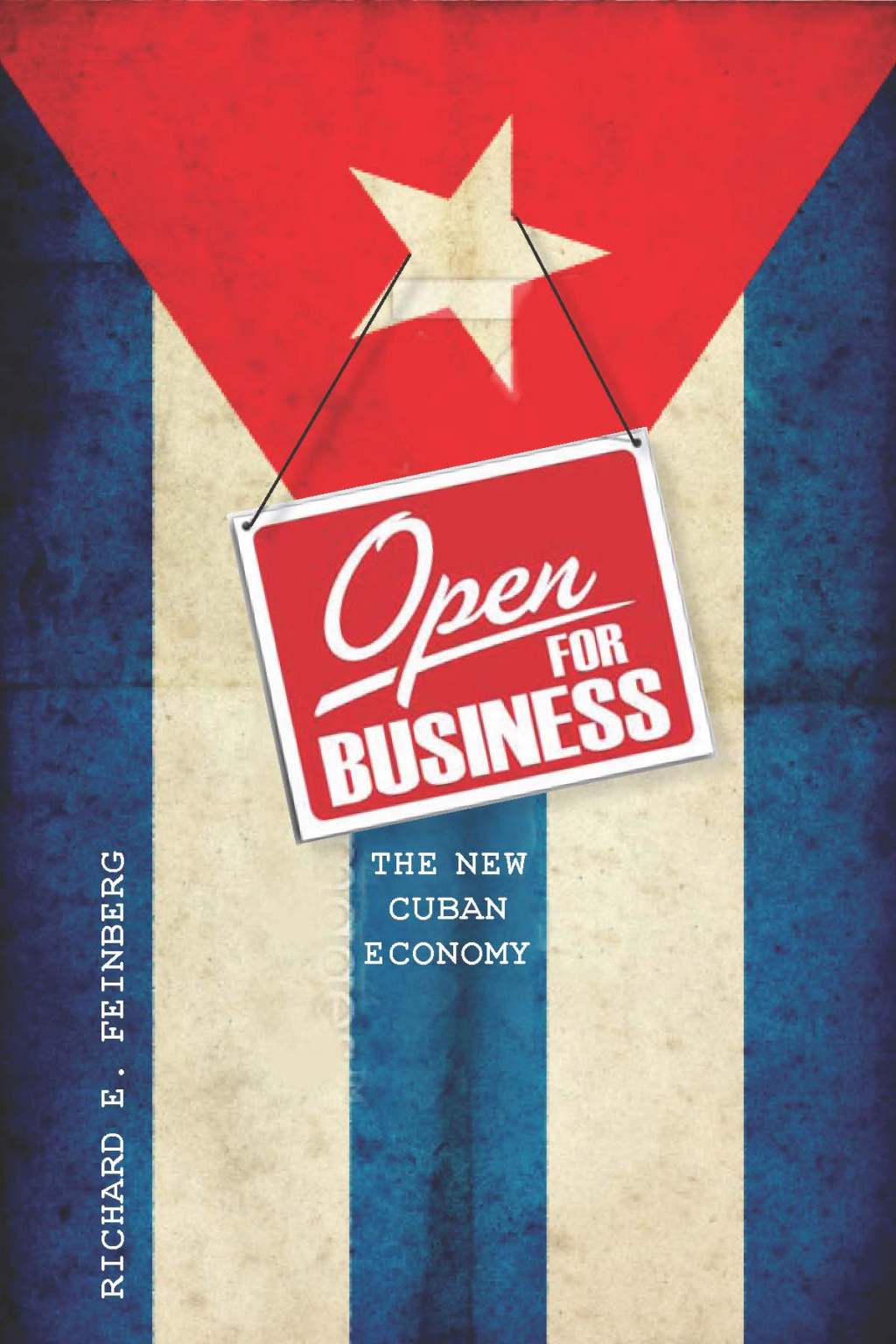 By Ted Henken. Complete review is available here: http://cubacounterpoints.com/archives/3832
By Ted Henken. Complete review is available here: http://cubacounterpoints.com/archives/3832
A review of Open for Business: Building The New Cuban Economy by Richard E. Feinberg, August 30, 2016, Washington, D.C.Brookings Institution Press, 264 pages, $22.00; ISBN-10: 0815727674’; ISBN-13: 978-0815727675
Introduction
A few years ago I ran into a fellow watcher of Cuba’s economy in my favorite local New York coffee shop. It was just after the publication of my own recent book on the emergent Cuban private sector, which I co-wrote with the Canadian economist Archibald Ritter. Keen on announcing my good fortune (and great timing!) to my colleague, I whipped the book out and proudly presented it to her. However, when she saw the title, Entrepreneurial Cuba, she looked up at me with a skeptical grin and said: “Well, aren’t you the optimistic one?!” I laughed, quickly assuring her that while the title was indeed up-beat, the contents of the book were a decidedly more complex, critical, and ambivalent affair, filled with equal parts new opportunities, old obstacles, significant reforms, and frightful omens.
Similarly, the title of Richard Feinberg’s own eminently readable and richly informative new book, Open for Business: Building the New Cuban Economy, slyly posits a reality of economic “openness” that is aspirational. The author himself admits that this position is still as much a government slogan for the future as it is an achieved present-day reality. While Feinberg tells his readers that Cuba is indeed “open for business” on the book’s eye-catching cover, the actual contents of the book’s wide-ranging eight chapters highlight aspects of Cuba’s new post-Fidel economy that place an emphatic and well deserved question mark (?) after this claim.
Far from falling prey to the “irrational exuberance” of facile boosterism or blatant apologetics that tend to characterize much business-oriented writing about Cuba these days, Feinberg’s book is a critical-minded and deeply informed evaluation of the pro-market experiments undertaken by the Cuban government over the past two decades with a special emphasis on Raúl Castro’s economic reforms between 2010-2016. Thankfully, Feinberg goes beyond an exclusive focus on the top-down administrative efforts on the part of the government to solve its chronic economic problems (chapter 2). Feinberg does consider the so-called “update” of Cuba’s state socialist economic model that is often in league with sympathetic foreign governments like China, Brazil, and Venezuela (Chapter 3) and pioneering foreign firms including Sherritt, Meliá, and Unilever (chapters 4-5).
Notably, chapter 6 on entrepreneurial Cuba tells the fascinating story of Cuba’s emerging private entrepreneurs and middle classes. According to Feinberg, now this new economic class includes as many as two million people and makes up 40% of the island’s workforce (a well-sourced if questionable claim). This is followed by a wonderfully original chapter that profiles a dozen Cuban “millennial voices”; youthful, and quite hopeful, pioneers in fields as diverse as business, art, media, academics, and technology. These innovative sections of the book allow the author to offer his readers a refreshingly rich and diverse portrait of the grass-roots efforts of everyday citizens to “open Cuba for business” from the inside and for the benefit of Cubans themselves.
********************
Conclusion
Not a typical academic monograph focused on a single aspect of the Cuban economy, Feinberg’s “Open for Business” is instead a globally-informed analysis of what are arguably the three most important and dynamic aspects of Cuba’s new economy: International trade, foreign investment, and the island’s emerging domestic entrepreneurs. His wide-ranging yet richly detailed focus – enhanced by multiple foreign investor case studies and vivid profiles of Cuba’s emerging entrepreneurs and pioneering millennials – makes this book required reading not just for professional economists and other academics, but also – and perhaps especially – for the growing ranks of potential foreign investors looking for independent, hard-nosed, and practical advice about Cuba’s unique business environment as they contemplate their own entreé into the Cuban market. It will also be useful and revelatory tool for U.S. policymakers as they gauge how best to “engage” the Cuban government over questions of trade and investment and “empower” the Cuban people, especially the emerging Cuban entrepreneurial middle classes.


